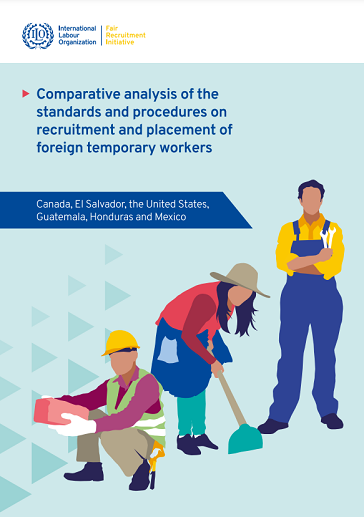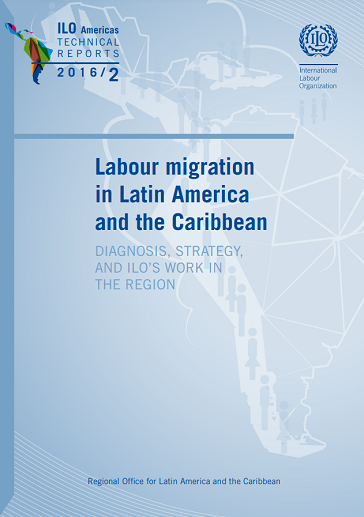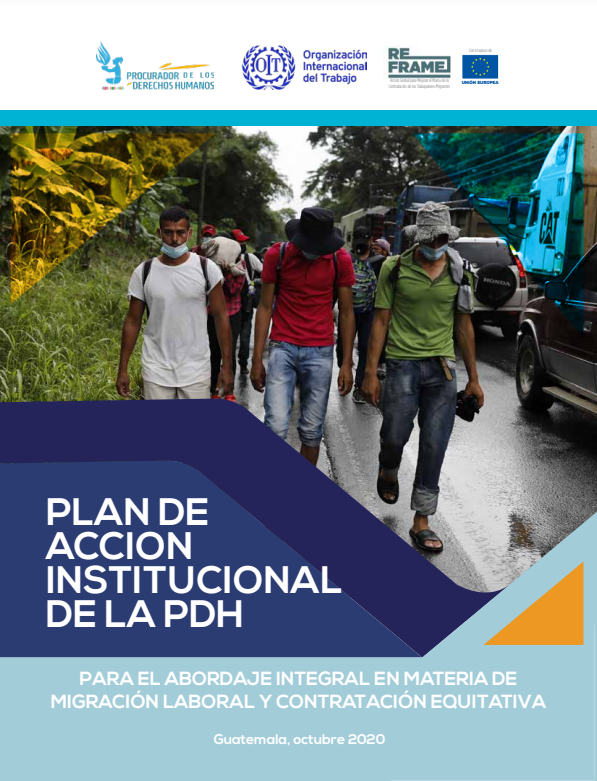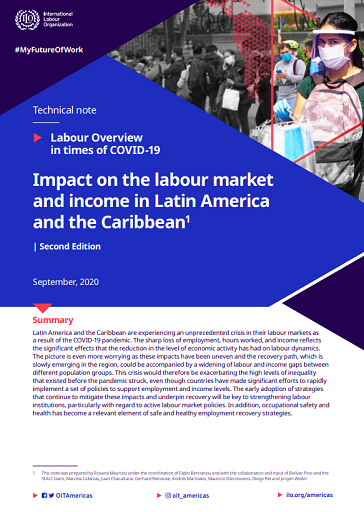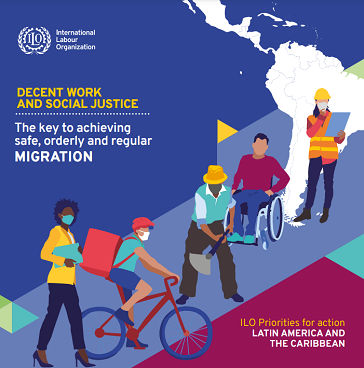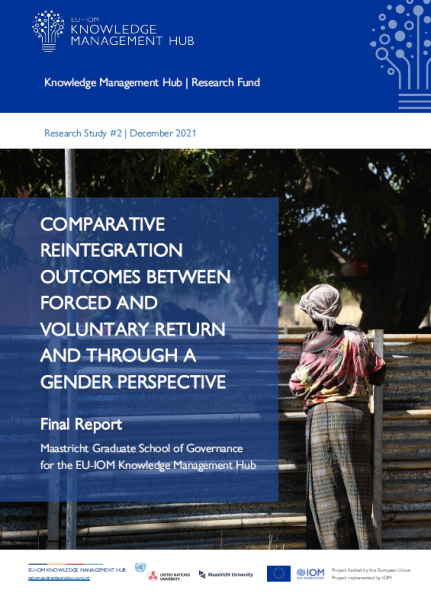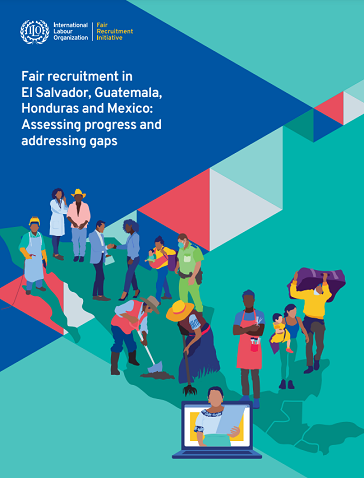Comparative analysis of the standards and procedures on recruitment and placement of foreign temporary workers: Canada, El Salvador, the United States, Guatemala, Honduras and Mexico
This study compiles, analyses and synthesizes the different national and international regulations and procedures that countries apply to the recruitment and placement of temporary foreign temporary workers; and it also presents lessons learned and key practices. In the case of Canada, the document includes the provinces of Ontario, Manitoba, Alberta, British Columbia, Saskatchewan and Quebec.
Type of document :
Country/Region : , , , , , ,
Year of publication :
Theme : , , ,
Labour migration in Latin America and the Caribbean. Diagnosis, strategy and ILO's work in the region (ILO Technical Reports, 2016/2)
Labour migration is a complex phenomenon that presents both challenges and opportunities, and if well managed, can not only sustain but also increase economic growth in destination countries, as well as reduce poverty in countries of origin.
Type of document :
Country/Region :
Year of publication :
Theme : , , , ,
Plan de acción de la Procuraduría de los Derechos Humanos (PDH) para el abordaje integral de la migración laboral y contratación equitativa
Este plan de acción identifica elementos para contribuir a la institucionalización y coordinación de intervenciones sobre migración laboral y contratación equitativa desde un enfoque coordinado entre las distintas unidades de la PDH y desde el liderazgo de la Defensoría de Personas Migrantes.
Type of document :
Country/Region : , , , ,
Year of publication :
Theme : , , ,
Labour overview in times of COVID-19: Impact on the labour market and income in Latin America and the Caribbean [Second Edition]
The COVID-19 pandemic has generated unprecedented changes in the world of work. While the crisis has affected all workers, migrants and their families, especially those with irregular migration status and/or engaged in informal work, face additional challenges.
In this context, this Briefing Note has three objectives. First, it briefly analyses the labour landscape of migrant and refugee workers in Latin America and the Caribbean between 2010 and 2019. Second, it presents the results of a rapid assessment conducted by the ILO in Latin America and the Caribbean between August and October 2020. The assessment analyses the effects of the COVID-19 pandemic on the labour and socio-economic landscape, and the responses of refugees, asylum-seekers and migrant workers, government authorities, employers' organizations, trade unions and civil society organizations to the new situation. Finally, in the third part, the document proposes recommendations for good governance of labour migration and the socio-economic integration of migrants and refugees in the context of the COVID-19 pandemic.
Type of document :
Country/Region :
Year of publication :
Theme : ,
Decent work and social justice: The key to achieving safe, orderly and regular migration
Short document outlining the ILO's priorities for action in Latin America and the Caribbean, including promoting the integration of the "Fair Migration Agenda" into strategies to strengthen labour migration governance and working with governments, workers' organisations, employers' organisations and employment agencies, with the objective of ensuring that recruitment ―including international recruitment― is carried out in a fair, transparent and ethical manner, and with full respect for relevant international labour standards, as well as the ILO's General Principles and Guidelines for Fair Recruitment.
Type of document :
Country/Region :
Year of publication :
Theme : ,
Comparative Reintegration Outcomes between Forced and Voluntary Return and Through a Gender Perspective
This report presents the outcomes of two combined research projects: 1) “Comparative reintegration outcomes in forced and voluntary returns”, and 2) “Understanding and implementing gender-sensitive sustainable reintegration”. The aims of these projects were to study differences in reintegration outcomes between forced and voluntary returnees, and male and female returnees in various return contexts and by identifying other factors that affect reintegration outcomes at the individual, community and structural level.
The projects were commissioned by IOM under the EU-IOM Knowledge Management Hub, funded by the European Union, and designed and implemented by a research team based at the Maastricht Graduate School of Governance (MGSoG), Maastricht University.
Research for this report was conducted in six countries (Afghanistan, Bangladesh, El Salvador, the Gambia, Nigeria and Somalia), using a mix of methods. The methodology consisted of the analysis of quantitative data collected by IOM country missions and the research team using the RSS tool, and the analysis of qualitative data collected through in-depth interviews with returnees, family members of returnees and key informant interviews.
Type of document :
Country/Region : , , , , , , , ,
Year of publication :
Theme :
Fair recruitment in El Salvador, Guatemala, Honduras and Mexico: Assessing progress and addressing gaps
Analysis of progress and gaps in the regulatory framework, policies and enforcement on fair recruitment in the region and in each country, with recommendations to address regional and national challenges.
The document also compiles cases, good practices and recent efforts in various sectors and regions at local and international level by governments, employers' organisations and workers' organisations.
Type of document :
Country/Region : , , , ,
Year of publication :
Theme : , ,
El Salvador, Guatemala, Honduras and Mexico make progress in ensuring fair recruitment for migrant workers
Posted at May 15th 2023 12:00 AM | Updated as of May 15th 2023 12:00 AM
Region/Country : , , , ,
|Themes : , ,
CIERTO Mexico - Fair recruitment practice adapted to COVID-19
CIERTO’s recruitment policy is aligned to ILO’s General Principles and Operational Guidelines for Fair Recruitment (GPOG) and puts emphasis on: a) promotion of employer paid recruitment; b) a shared responsibility approach in the labour supply chain to ensure adequate protection of migrant workers; c) Strengthening communities of origin’s knowledge on fair recruitment by developing third-party independent, human rights based monitoring of recruitment within communities of origin. They also train workers on how complaint mechanisms work with their employer, assist them in filing a complaint if necessary, and intervene only when a complaint does not receive a timely resolution. A third-party independent monitoring actor supervises CIERTO’s work in communities of origin (mostly so that no recruitment fees are charged). They also visit employers at destination to ensure that CIERTO’s description of workplace conditions is accurate, and they conduct worker’s surveys upon return to document any potential abuse either by the recruiter (CIERTO) or by the employer.
Type of document :
Country/Region : , ,
Year of publication :
Theme :
Media-friendly glossary on migration
The use of the right terminology is key for quality reporting, to avoid stigmatization and positively influence the debate on migration.
- Available in Arabic, English, French, French (Madagascar), Nepali (English), Spanish and Vietnamese (English and Vietnamese).
- Adapted to the national context in Indonesia (Bahasa), Madagascar (French), Nepal (English), Thailand (Thai), and Vietnam (English and Vietnamese).
Type of document :
Country/Region : , , , , , , ,
Year of publication :
Theme :
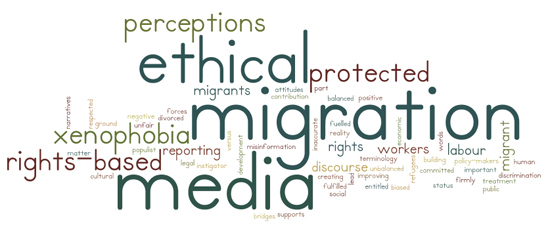
Subscribe to the Fair Recruitment Initiative Newsletter
Sign up to receive news delivered to your inbox.

